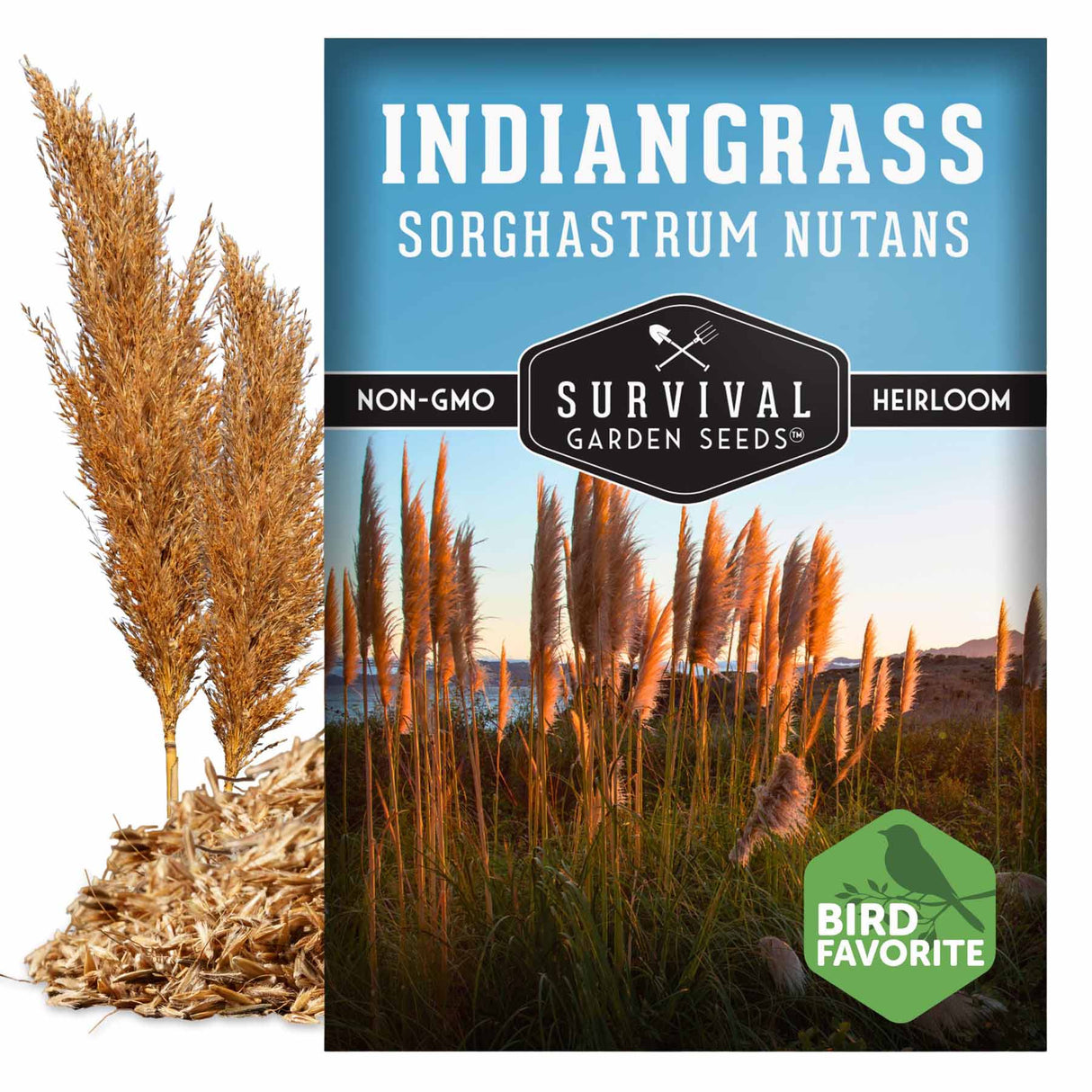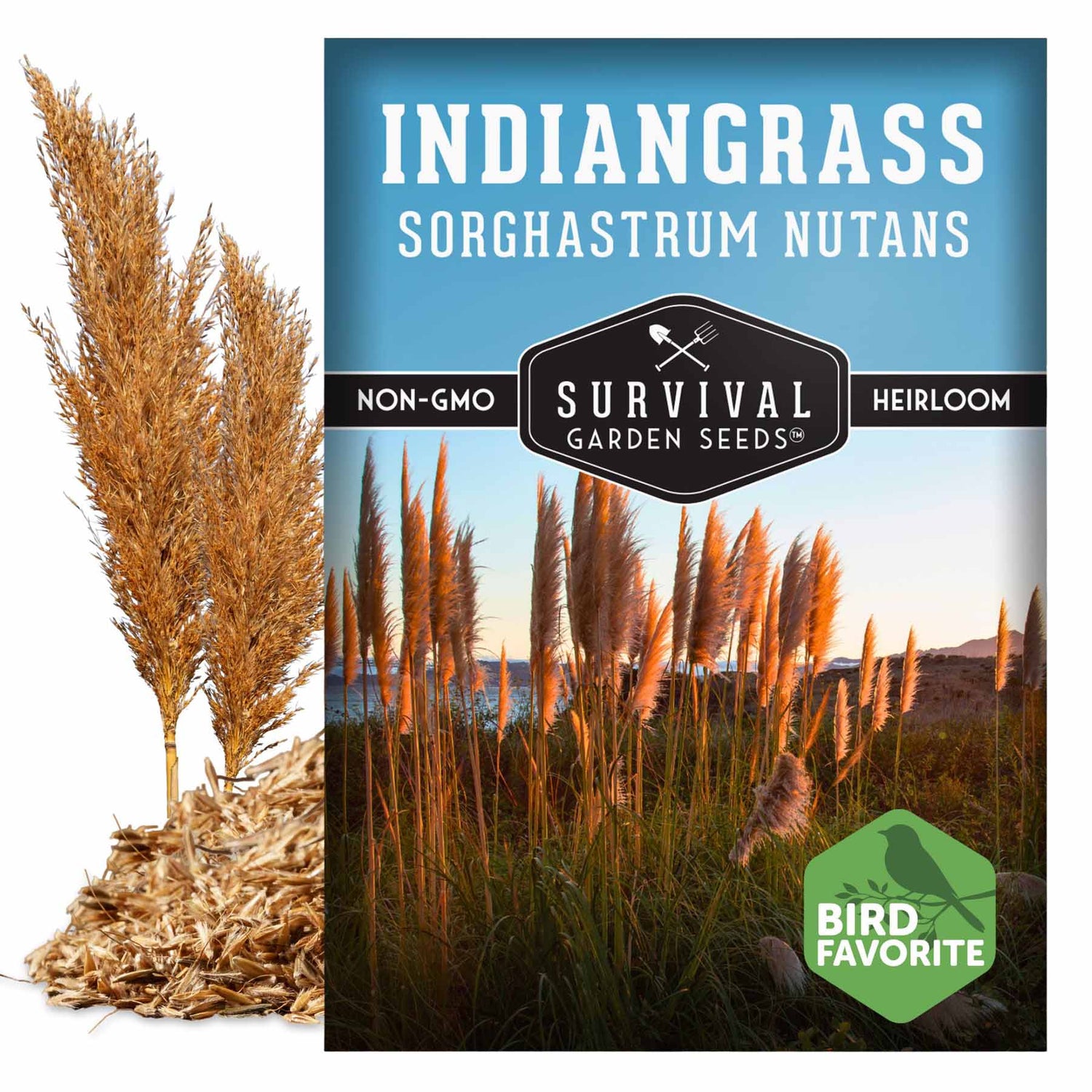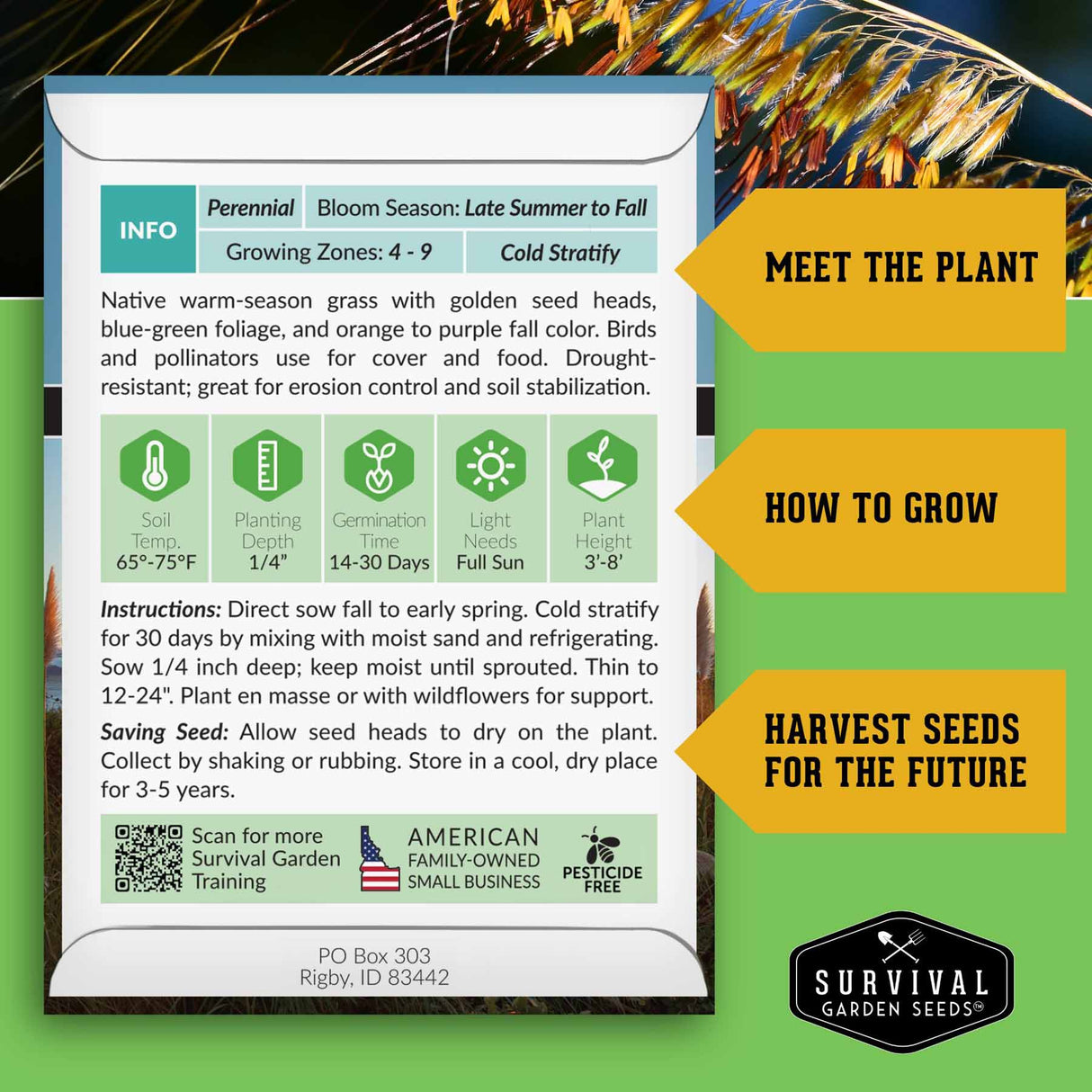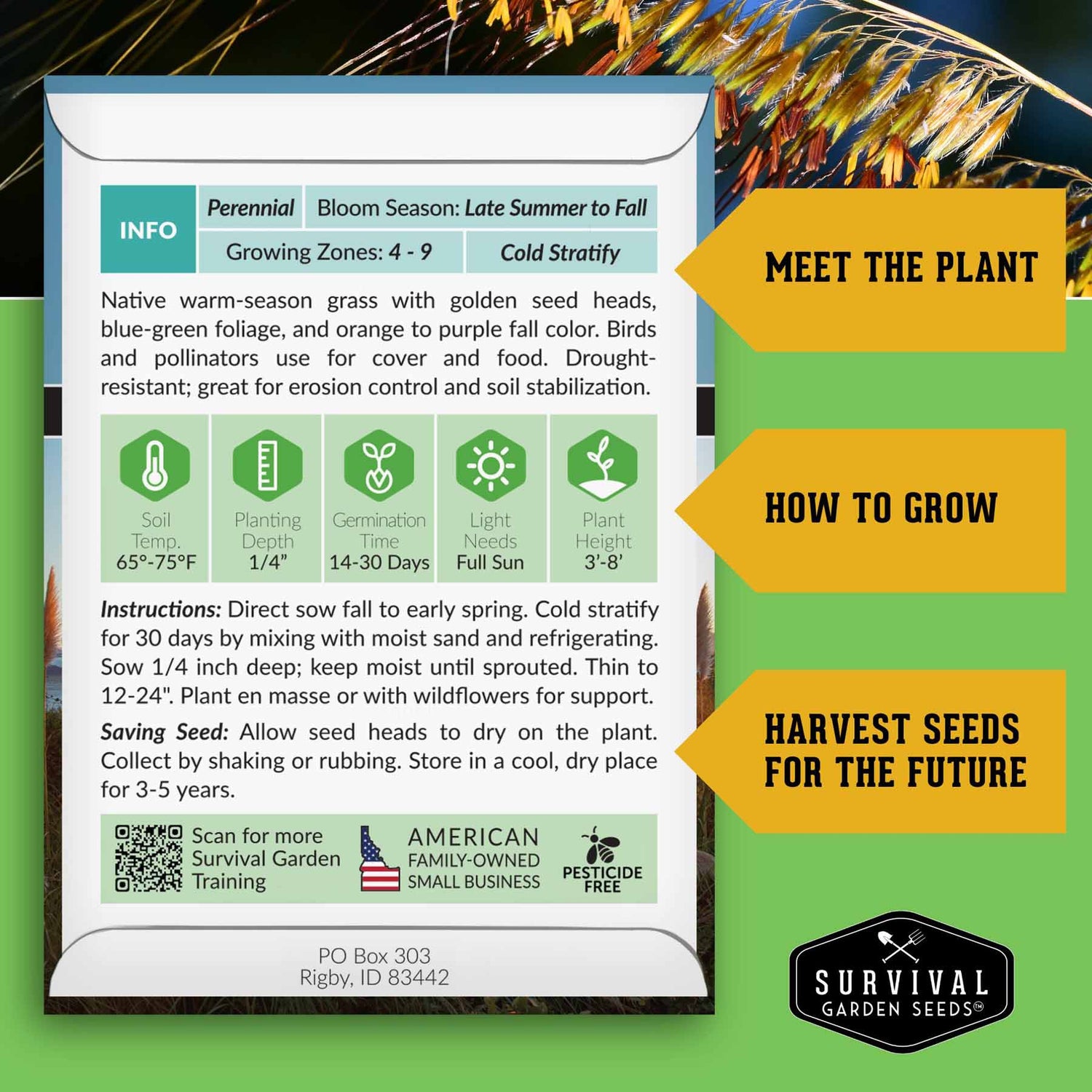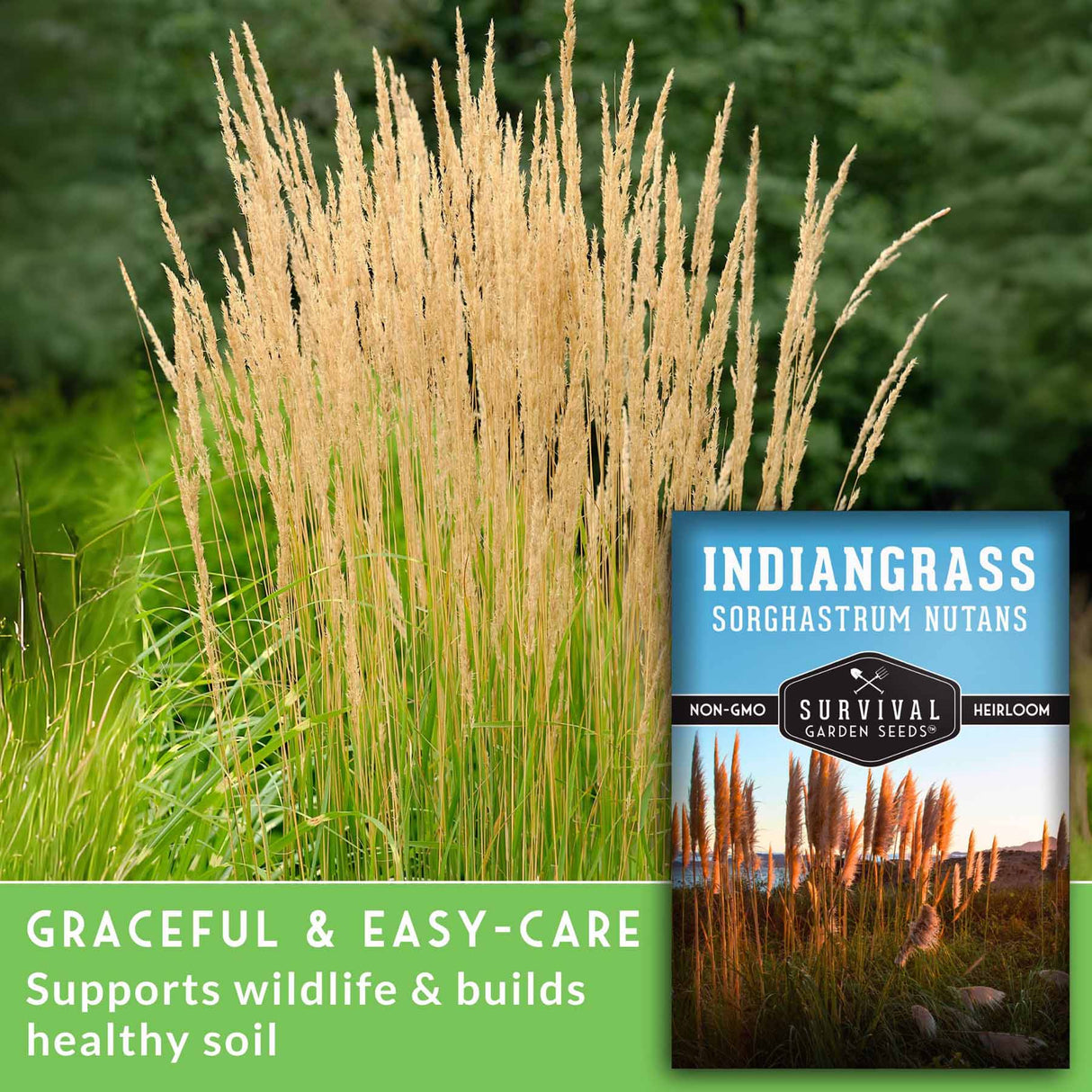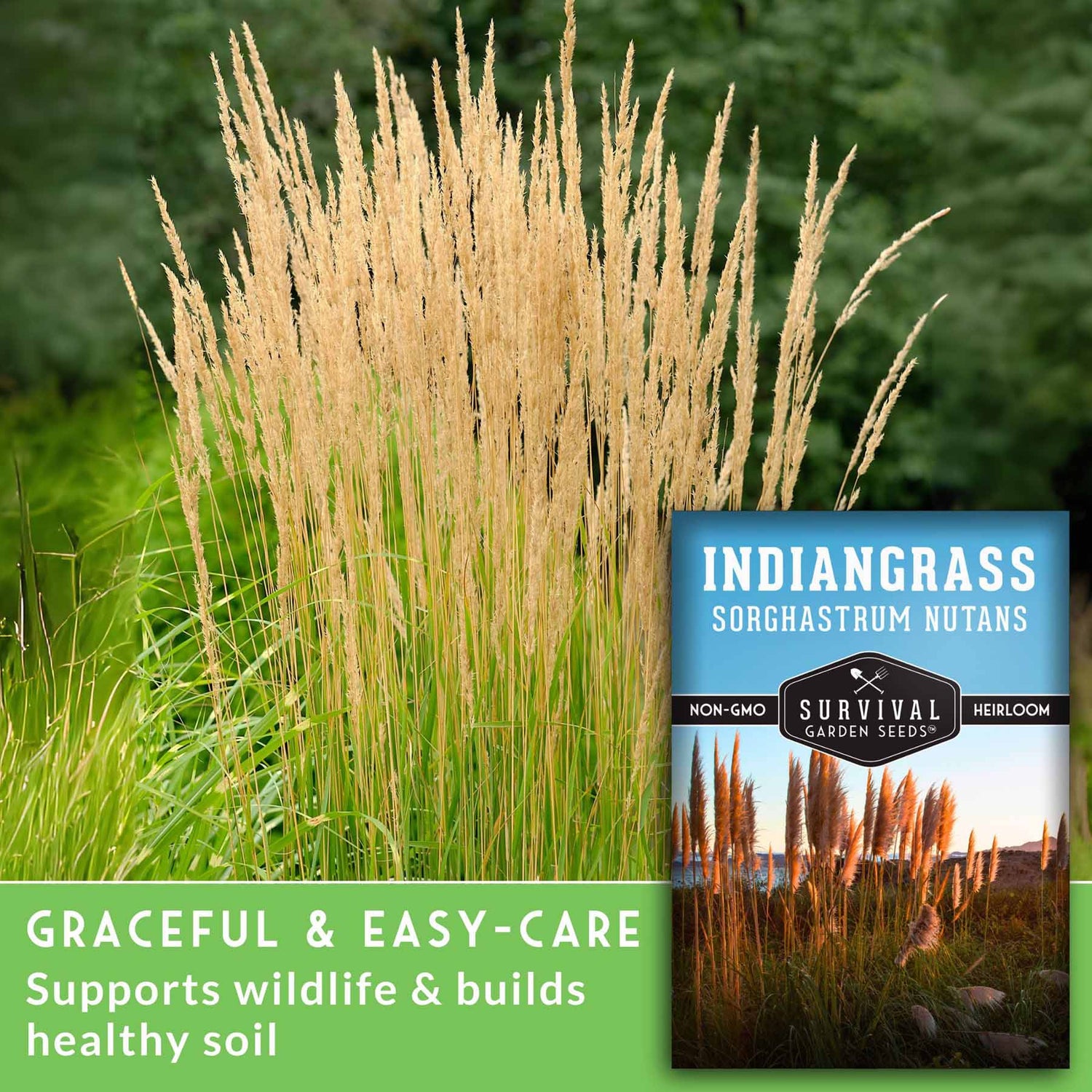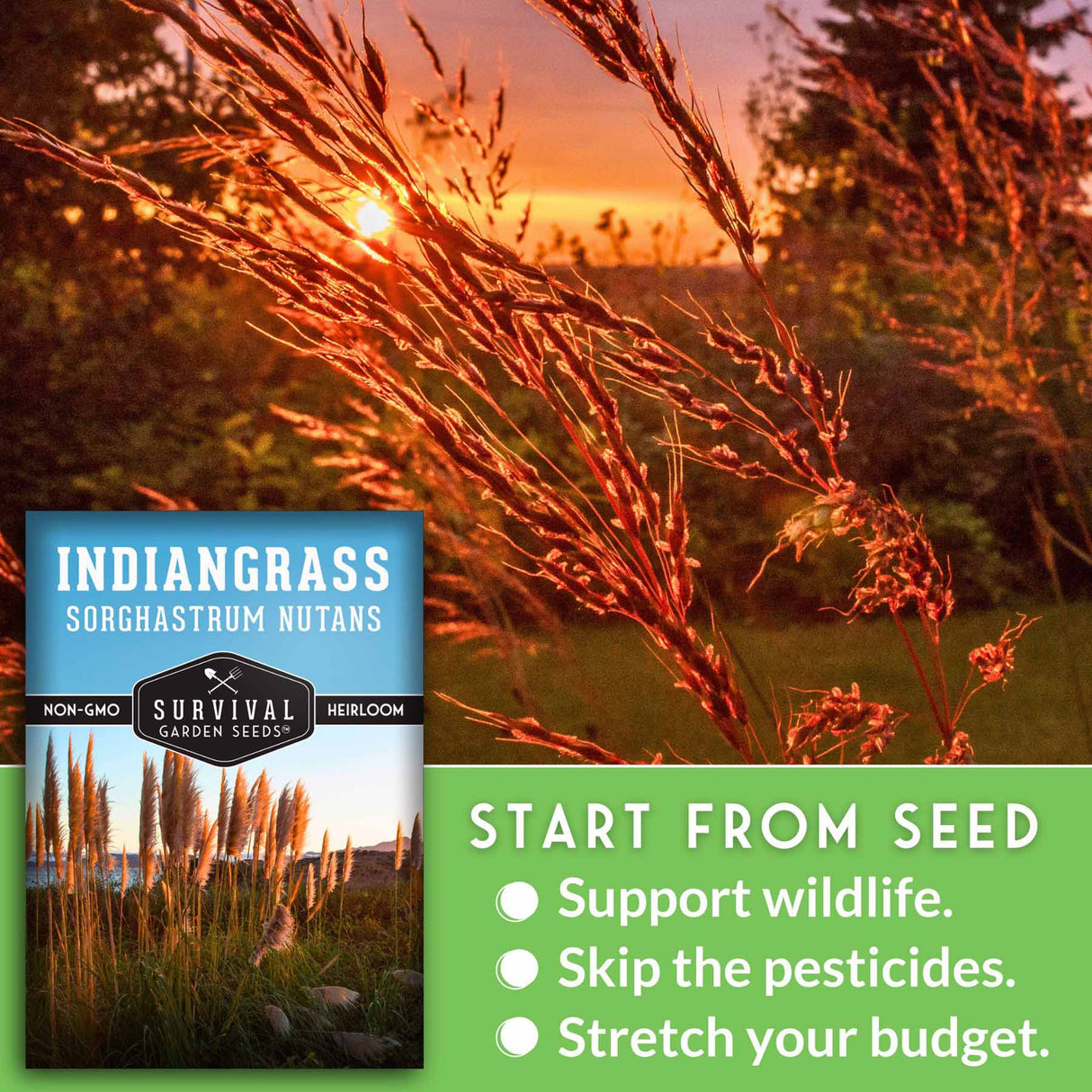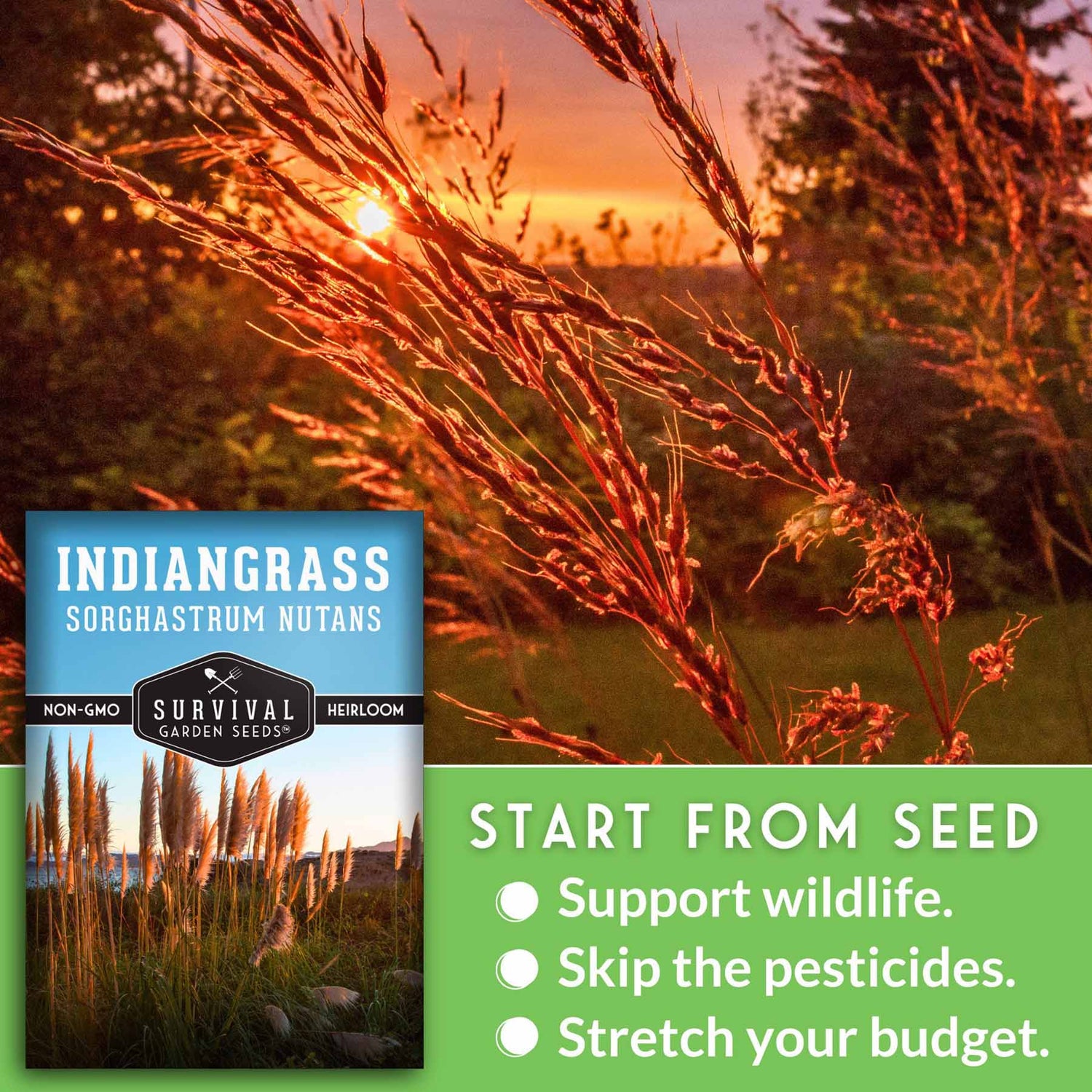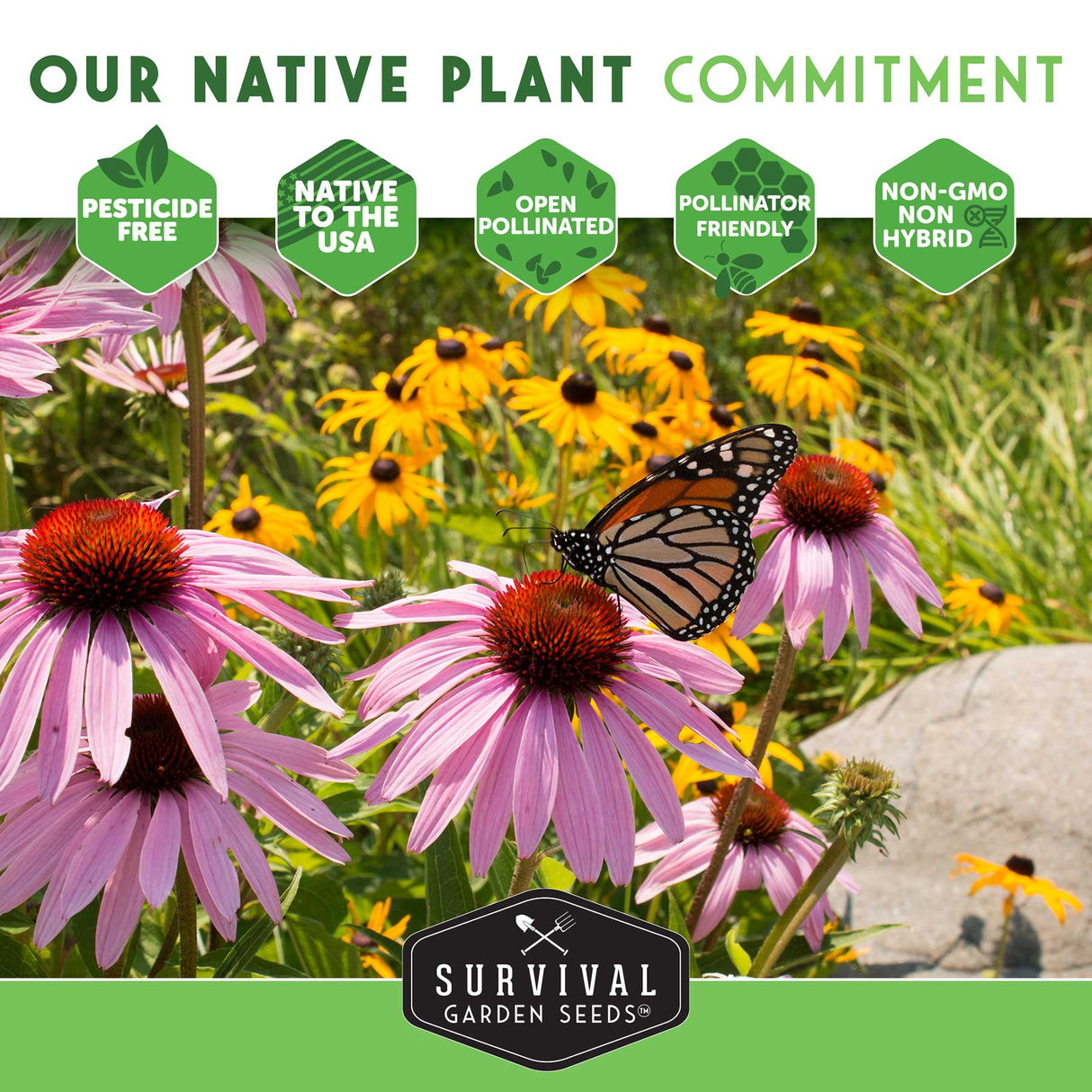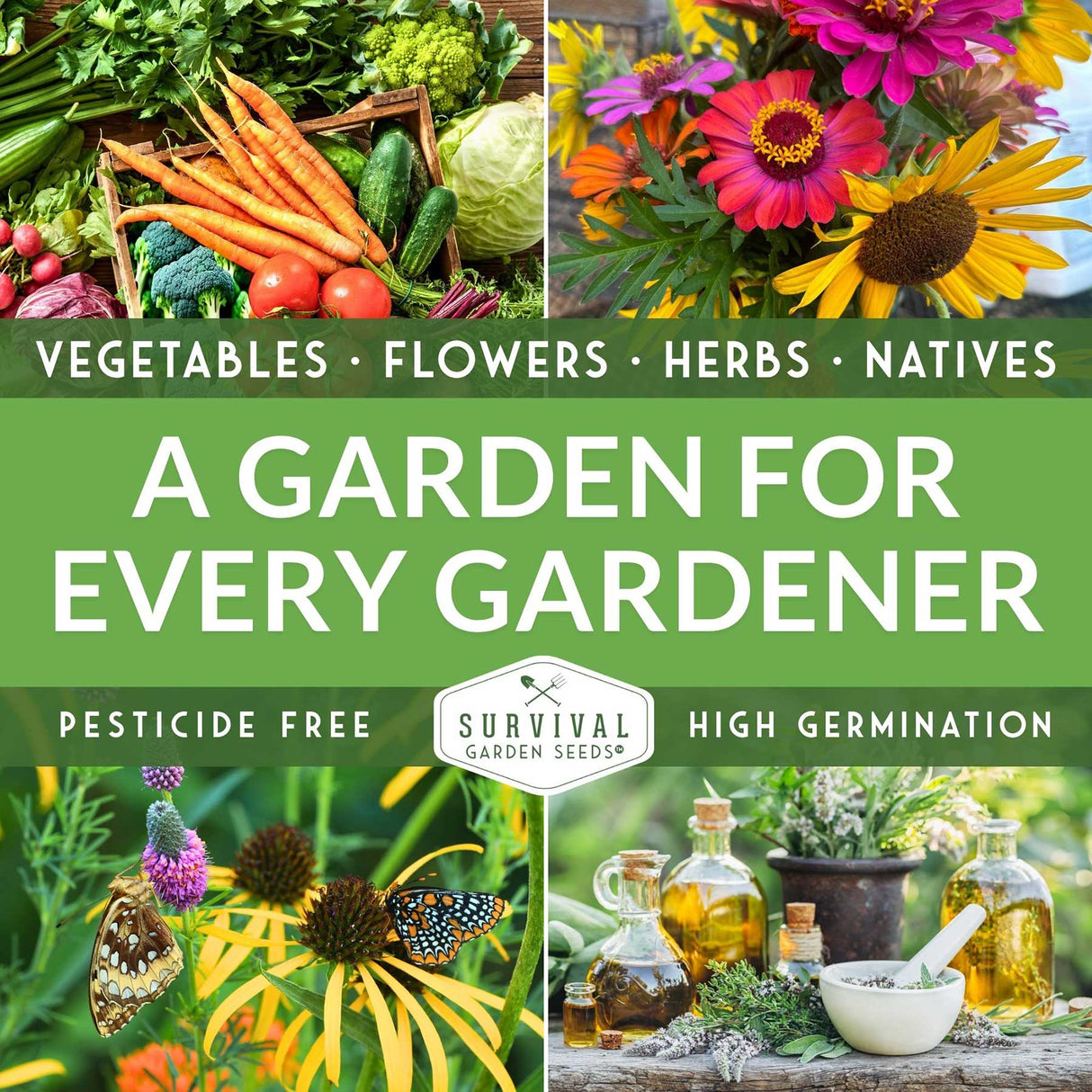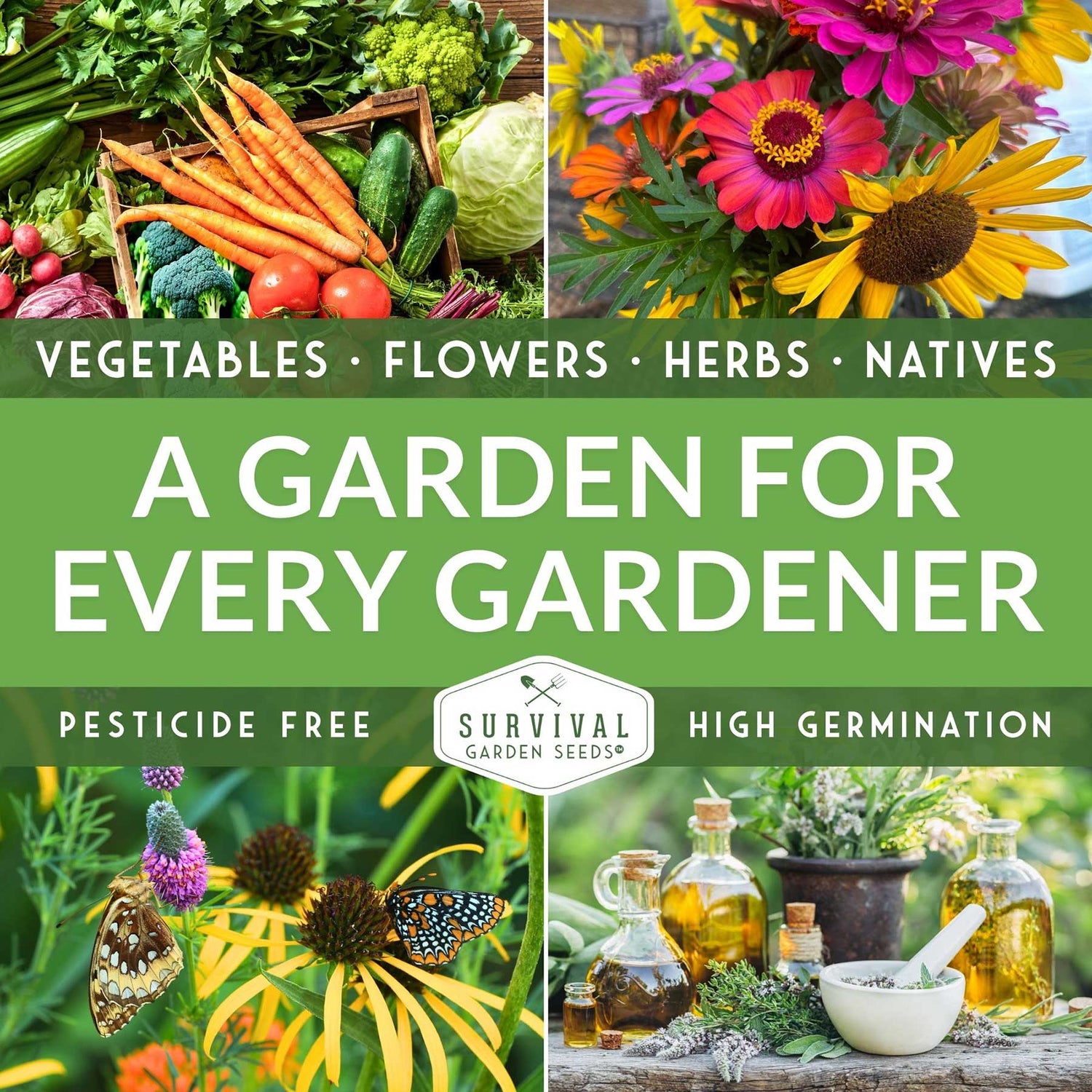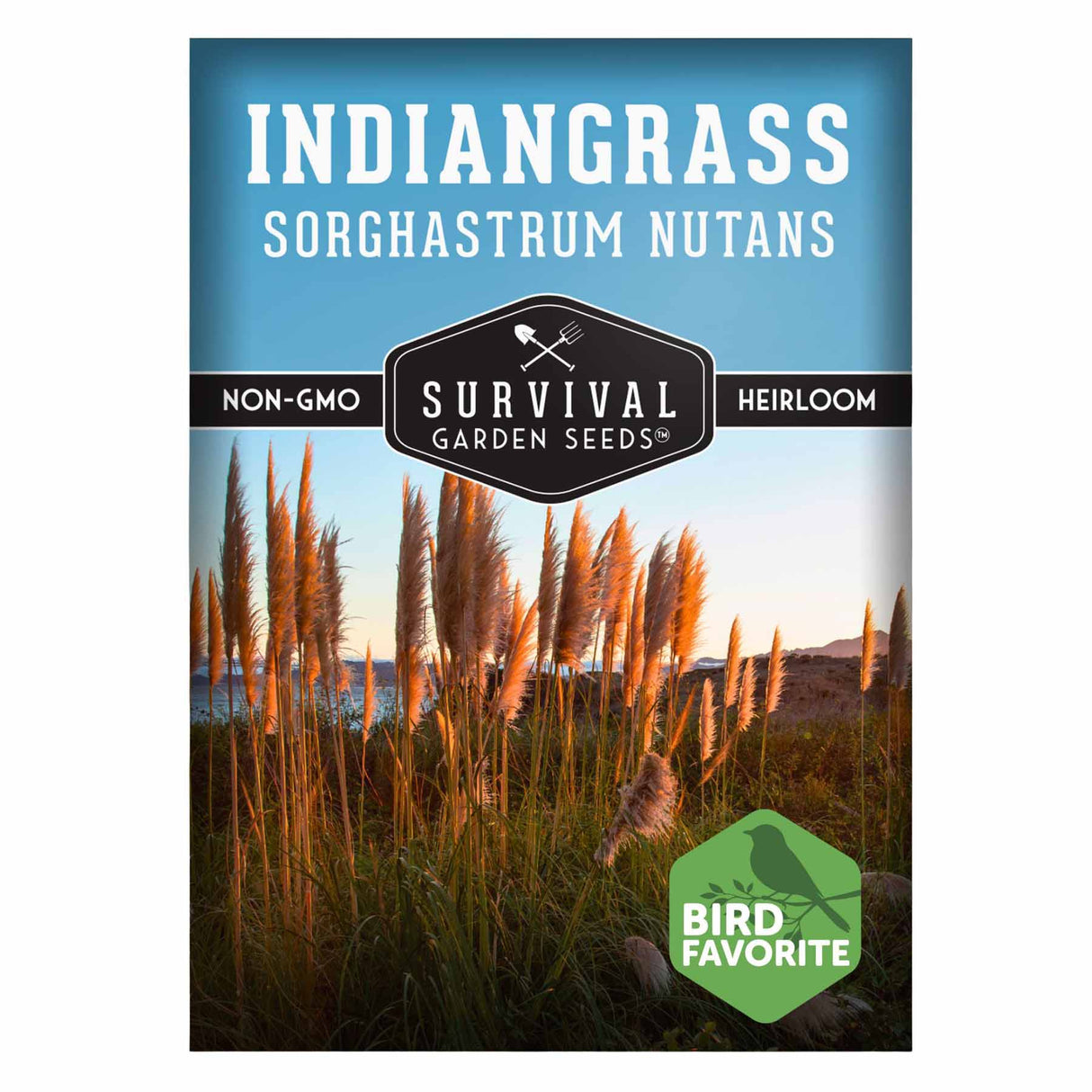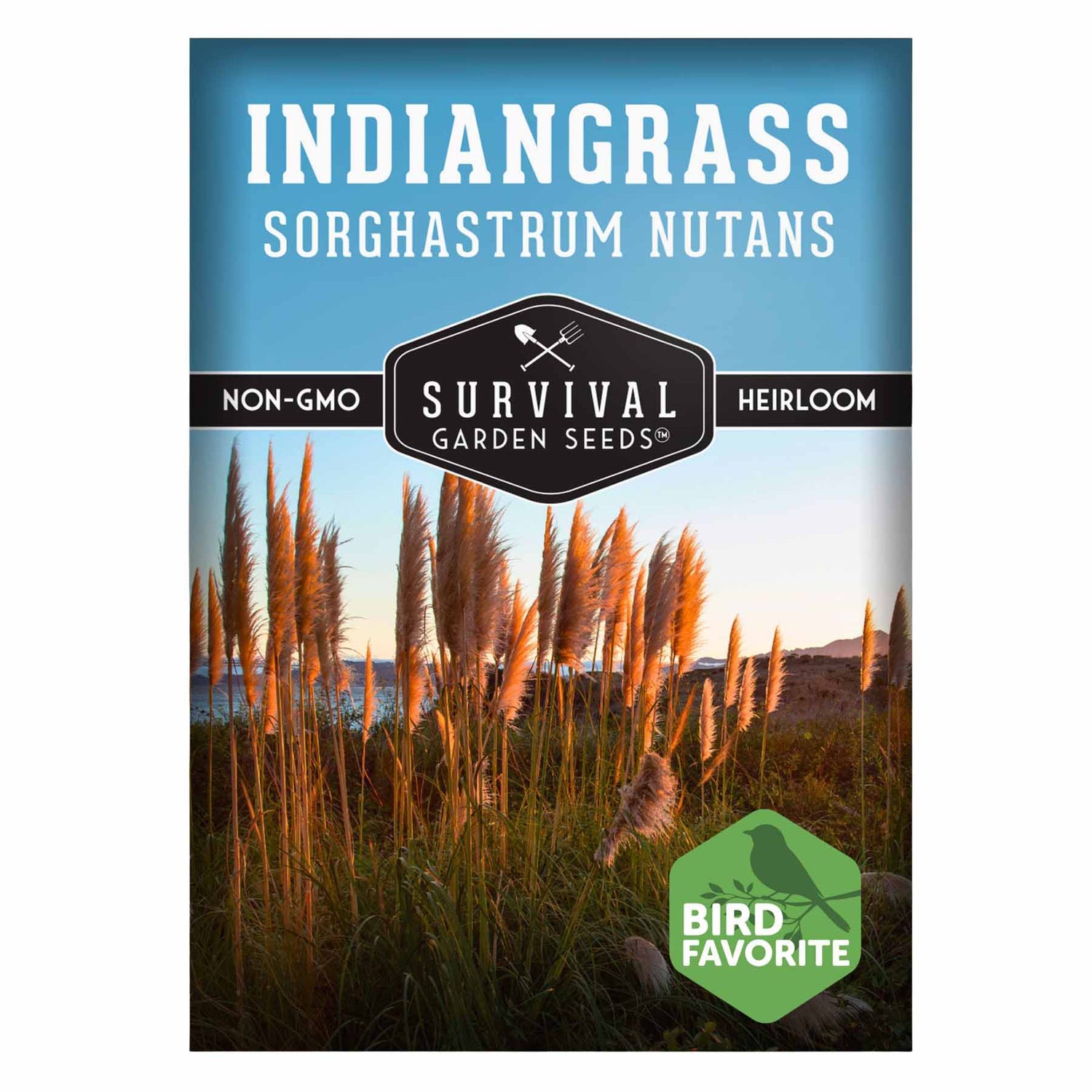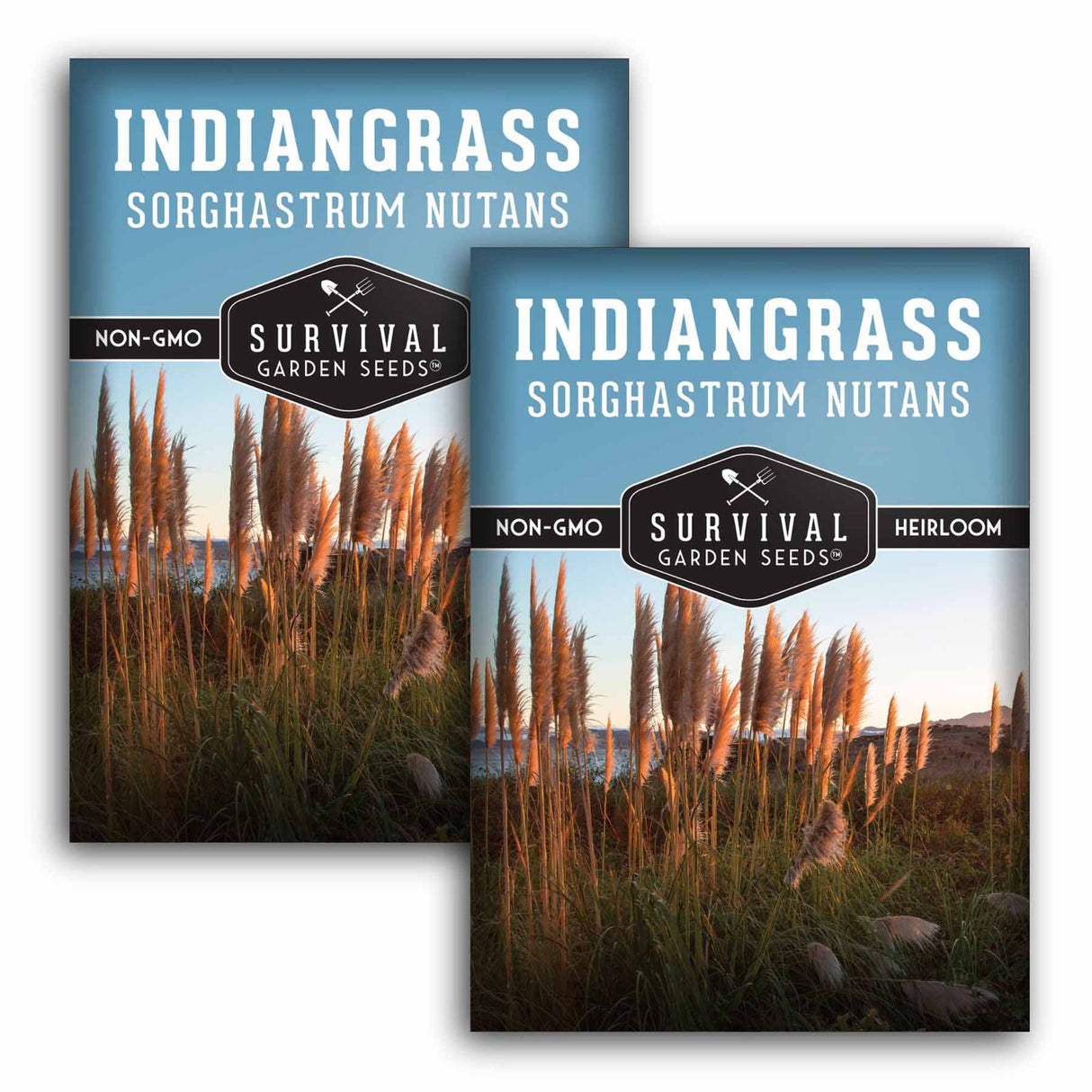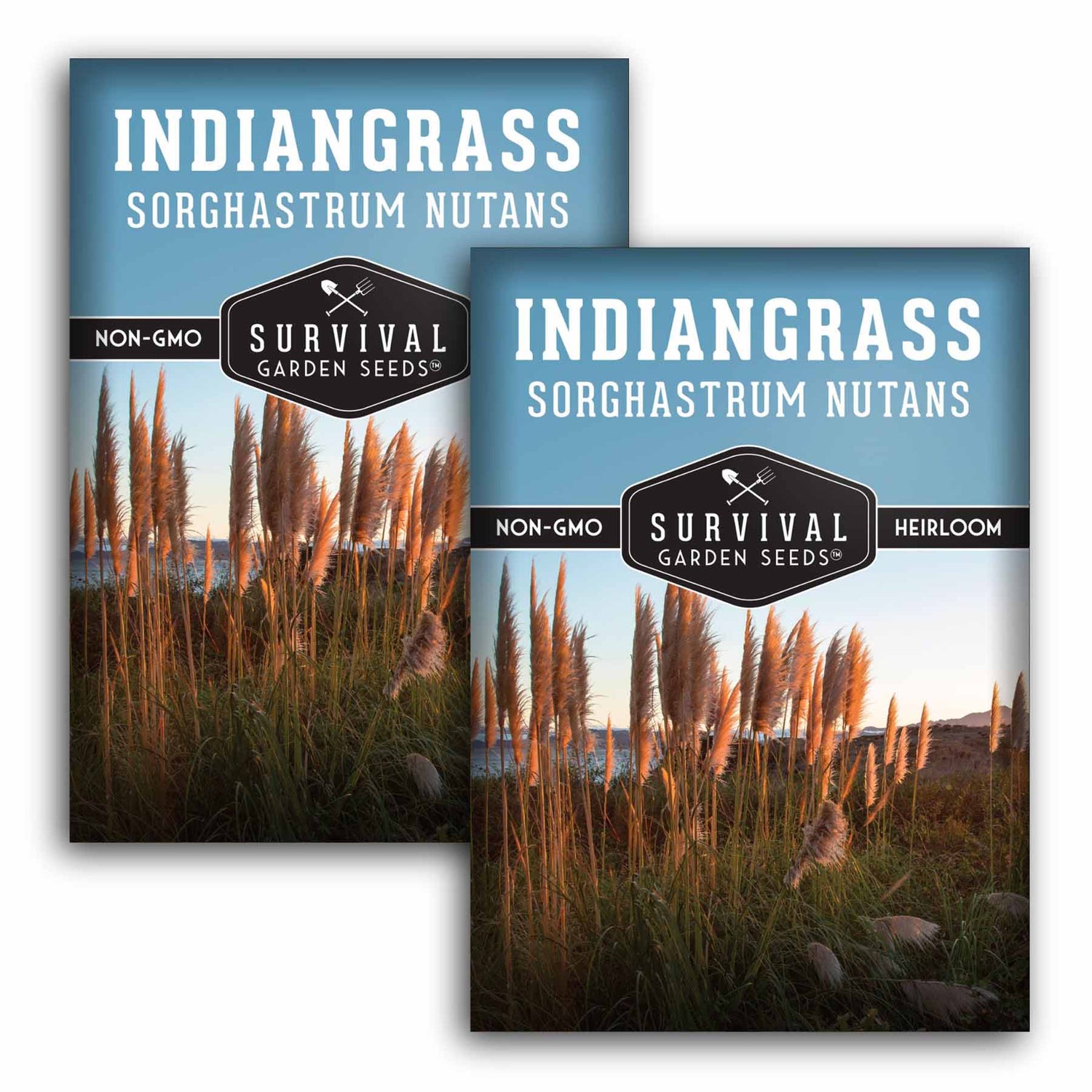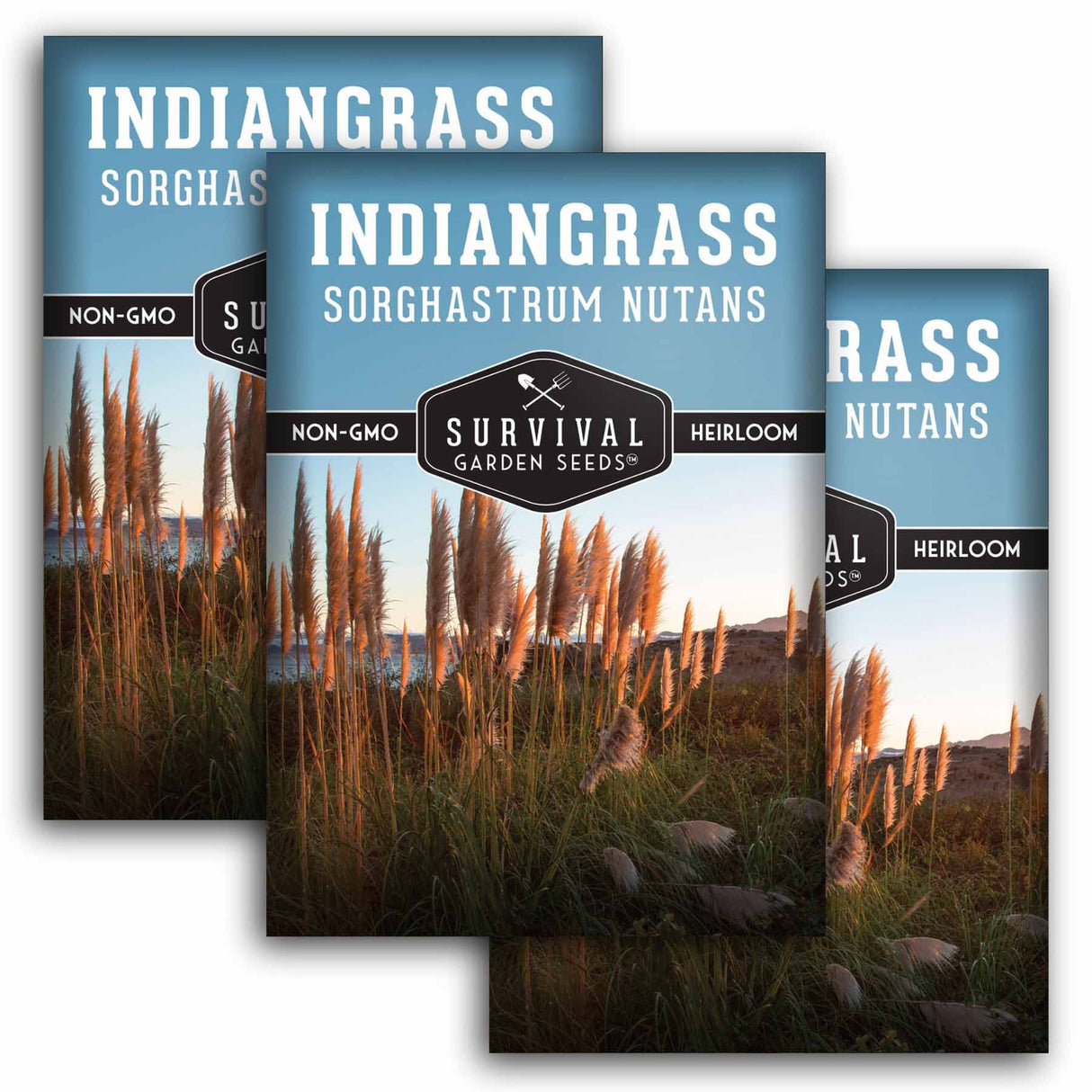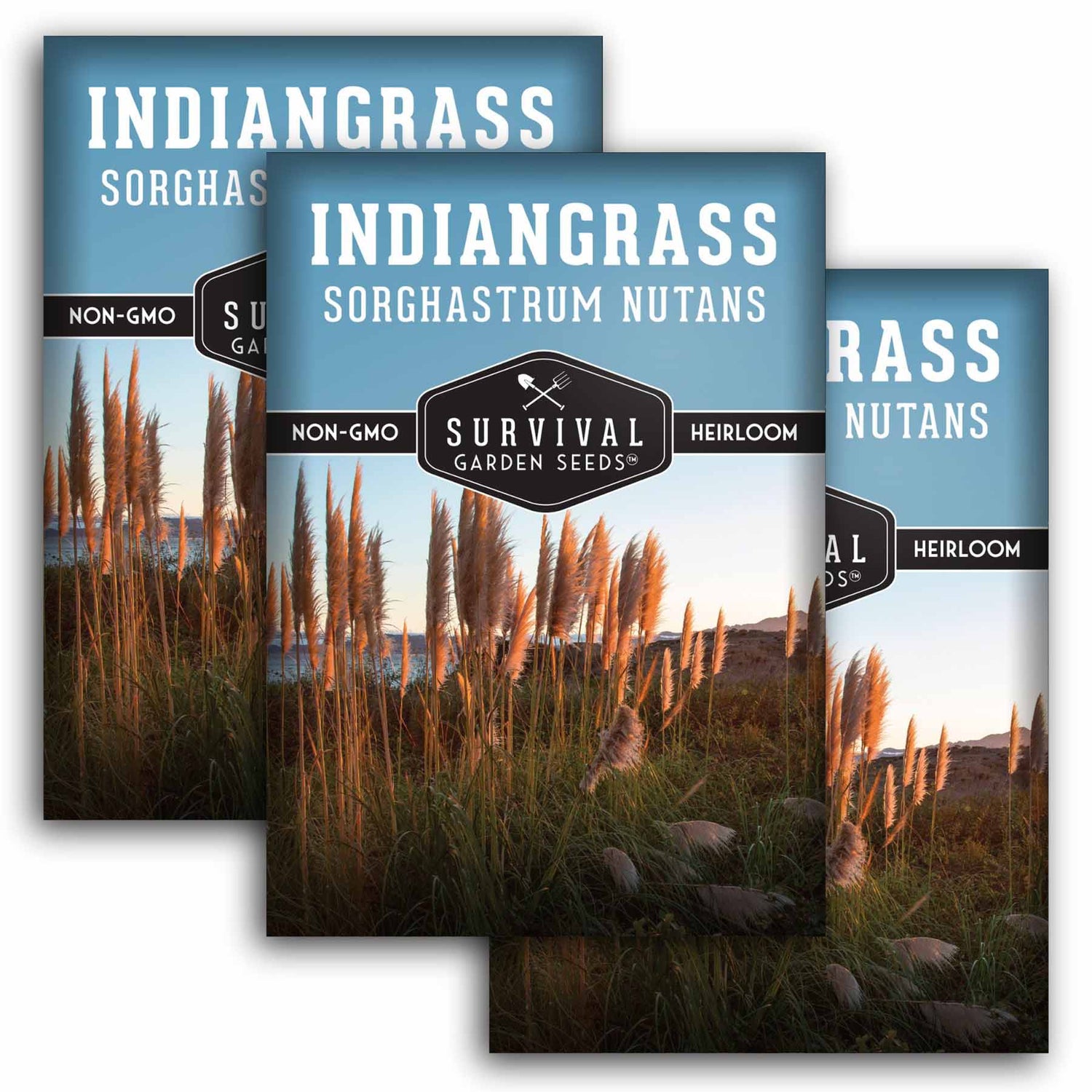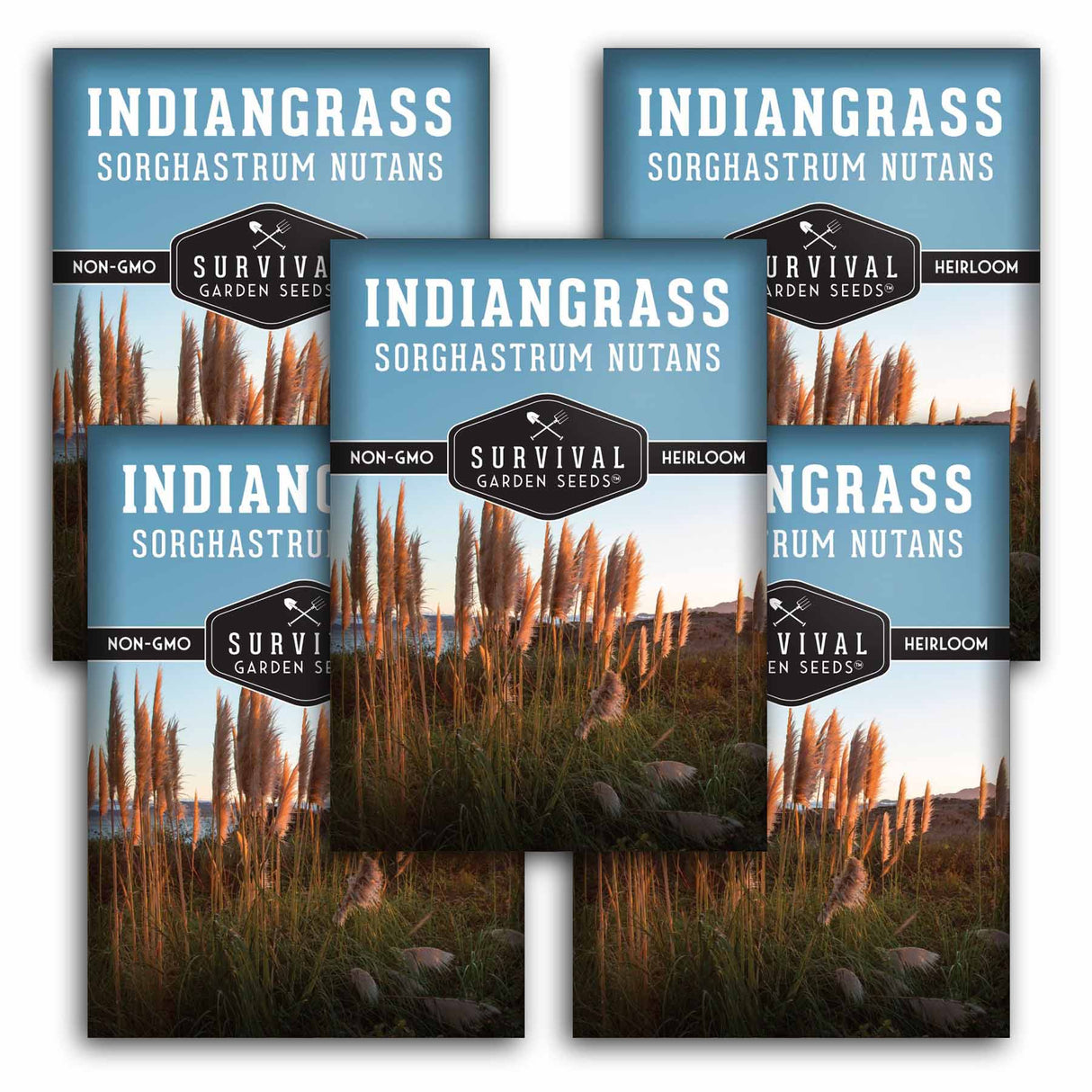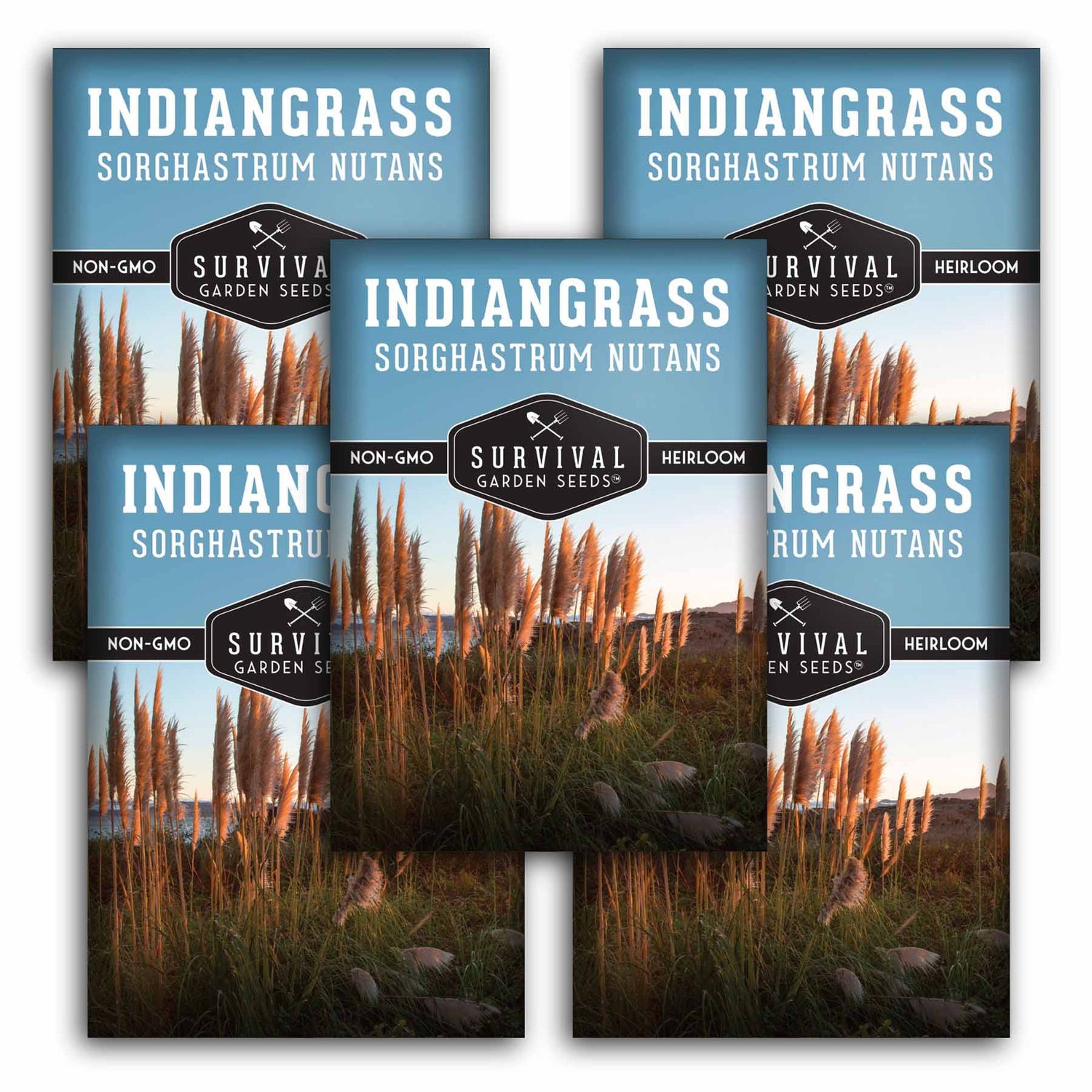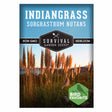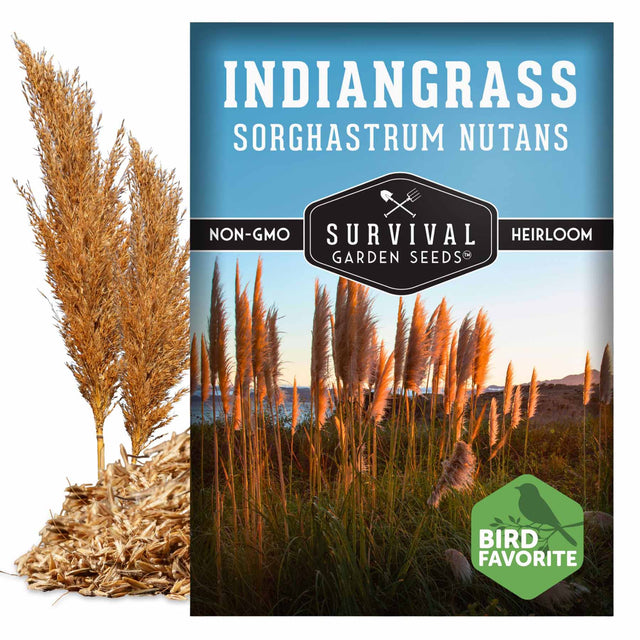Indiangrass Seeds (Sorghastrum nutans) – Native Tall Prairie Grass for Wildlife Habitat, Erosion Control & Fall Color
Heirloom - Non-GMO - Reliable Germination
Indiangrass Seeds (Sorghastrum nutans) – Native Tall Prairie Grass for Wildlife Habitat, Erosion Control & Fall Color - 1 Packet is backordered and will ship as soon as it is back in stock.
Couldn't load pickup availability
Indiangrass seeds (Sorghastrum nutans) grow into one of North America’s most iconic and majestic native prairie grasses. This warm-season perennial produces tall, upright stems topped with shimmering golden seed heads that rise above blue-green summer foliage. In fall, the plants transform into striking shades of orange and purple, adding seasonal drama and long-lasting structure to prairie landscapes.
Reaching heights of 3–8 feet, Indiangrass is a foundational species used to create visual balance and vertical contrast in large plantings. It pairs especially well with tall prairie wildflowers, offering both structural support and a natural visual resting point within diverse grassland ecosystems.
A Foundational Prairie Grass with Powerful Roots:
Indiangrass is as valuable below ground as it is above. Its extensive root system helps rebuild topsoil, stabilize land, and improve long-term soil health.
Plant characteristics:
- Native warm-season perennial bunchgrass
- Grows approximately 3–8 feet tall
- Blue-green foliage with golden, feathery seed plumes
- Fall color ranging from orange to purple
- Deep, soil-building root systems
- Adapted to USDA zones 4–9
Why Customers Love Indiangrass Seeds:
- Provides essential cover and nesting habitat for birds
- Supports beneficial insects, including lady beetles and native skippers
- Exceptional drought tolerance once established
- Improves soil structure and reduces erosion
- Contributes to carbon sequestration and sustainable land management
- Creates dramatic height and movement in prairie plantings
How to Use / How to Grow:
Sow seeds in full sun in well-draining soil. Indiangrass adapts well to clay, loam, or sandy soils and is ideal for prairie restorations, large naturalized areas, slopes, and conservation plantings. Water during establishment; mature plants require minimal maintenance and thrive under dry conditions.
Cold Stratification for Better Germination:
Indiangrass seeds benefit from cold stratification. Follow packet instructions to expose seeds to cold, moist conditions before planting. This improves germination rates and promotes strong early growth.
Heirloom Native Plant Seeds
All of our seeds are open-pollinated, non-GMO, heirloom varieties with tested germination rates
Specifications
Specifications
-
Botanical Name
-
Seasonality
-
Planting Zones
-
Light
-
Soil Temp for Germination
-
Germination Time
-
Planting Depth
-
Plant Size
-
Growing Instructions
-
Seed Saving Instructions
-
Seed Count (approximate)
Payment & Security
Your payment information is processed securely. We do not store credit card details nor have access to your credit card information.
Support Native Habitats
- Supports Local Ecosystems and Biodiversity: Native plants are uniquely adapted to the local climate and soil conditions, forming the foundation of healthy ecosystems. They provide essential food, shelter, and breeding grounds for a wide array of native wildlife, including pollinators like bees and butterflies, birds, and beneficial insects, which helps to maintain and enhance local biodiversity.
- Requires Less Maintenance and Resources: Once established, native plants typically require significantly less water, fertilizer, and pesticides compared to non-native ornamental plants. Their deep root systems improve soil health and water penetration, reducing runoff and erosion, and their natural resistance to local pests and diseases minimizes the need for chemical interventions, saving time, money, and environmental impact.
- Contributes to Climate Resiliency and Conservation: By supporting a healthy native plant community, you are helping to create more resilient landscapes that can better withstand the impacts of climate change, such as extreme weather events. Growing native plants also plays a crucial role in conserving local plant genetics, preserving the natural heritage of a region, and providing critical habitat corridors for wildlife facing habitat loss.
- Detailed Growing Information: Paper seed packets include clear planting instructions, germination tips, and seed-saving info, great for beginner or experienced gardeners growing vegetables, herbs, flowers, or native plants.
- Trusted USA Seed Company: Family-owned business providing heirloom, non-GMO, open-pollinated seeds; always fresh, untreated, rigorously tested, and expertly packed for long-term storage and gardening success across all experience levels
Frequently Asked Questions
Are your seeds heirloom and open-pollinated?
Are your seeds heirloom and open-pollinated?
Yes. All of our seeds are heirloom, open-pollinated varieties, which means they can produce seeds that grow true to type and are suitable for seed saving.
You can learn more about open-pollinated, heirloom, and non-GMO seeds in our Survival Garden Training blog.
Are your seeds non-GMO?
Are your seeds non-GMO?
Yes. All Survival Garden Seeds are 100% non-GMO. Our seeds are open-pollinated heirloom varieties and are never genetically modified.
Are your seeds treated with chemicals?
Are your seeds treated with chemicals?
No. Our seeds are completely untreated and free from chemical coatings, fungicides, or synthetic treatments.
How do I know my seeds are fresh?
How do I know my seeds are fresh?
Every seed packet includes a packed-for date, and we germination-test each seed lot before packaging to ensure high viability.
What is the shelf life of your seeds?
What is the shelf life of your seeds?
Most seeds remain viable for 3 to 5 years or longer when stored properly in a cool, dry place away from light and moisture.
In what USDA hardiness zones can I grow your seeds?
In what USDA hardiness zones can I grow your seeds?
Our varieties are selected to grow successfully across USDA Hardiness Zones 3 through 10. Each packet includes variety-specific planting guidance and germination tips.

